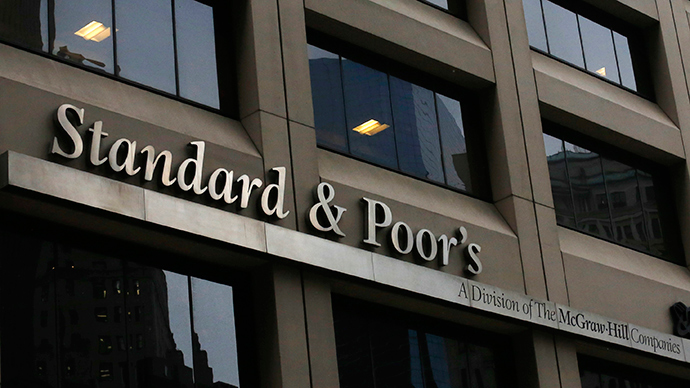S&P downgrades Greece, warns of default if no deal with creditors

Standard & Poor’s has lowered Greece’s sovereign rating one notch further into junk territory, saying the country will likely default within the next 12 months if it doesn’t agree with its creditors over the €7.2 billion installment.
S&P downgraded the rating to "CCC" from "CCC+" - a highly speculative rating on S&P’s scale – saying the outlook was negative.
“Greece delaying its payment to the International Monetary Fund (IMF) last Friday, June 5, appears to demonstrate that the Greek government is prioritizing pension and other domestic spending over its scheduled debt service obligations,” S&P said in a statement on Wednesday.
Greece’s weakening fiscal position makes any agreement with its international creditors – the IMF, the ECB and the European Commission – less realistic, the rating agency added.
However, S&P claimed the ratings could stabilize at the current level if it believes that “a new financial support program will be agreed with policy conditions that satisfy both the political priorities in Greece and the creditor countries.” It added that such a scenario could contribute to promoting political stability, tax compliance, and a gradual economic recovery.
READ MORE: Greece puts off €300mn IMF payment till end of June
Earlier this year, other international rating agencies Moody’s and Fitch cut ratings on Greece deeper into junk territory. Their outlooks were also negative.
On Wednesday, the European Central Bank raised emergency funds for Greek banks by €2.3 billion, the biggest weekly amount since February, as depositors were nervously withdrawing their savings due to the country’s uncertain future in the eurozone.
Also on Wednesday, Germany’s Chancellor Angela Merkel, French President Francois Hollande and Greek Prime Minister Alexis Tsipras agreed that negotiations between Greece and its international creditors should be intensified to reach a deal to avoid the country’s default. Tsipras is also to meet with European Commission chief Jean-Claude Juncker on Thursday to discuss the terms of the bailout deal.
READ MORE: Greek failure would mean eurozone end – Tsipras
The S&P downgrade comes as Greece is struggling to find a compromise with the EU over the terms of the reform plan which could unlock the remaining €7.2 billion tranche of the second bailout for the country. Cash-strapped Athens needs the loan to repay its debts to the Troika of lenders – the IMF, the European Commission and the ECB. Greece’s government says that its priority is to pay pensions and salaries and avoid imposing further hardship on its own people. Meanwhile, the Troika is demanding public sector cuts, steep cuts to pensions, a crackdown on tax evasion and the adoption of what it calls a sustainable budget, before it releases the money.
On Friday, Greece skipped a €300 million IMF payment, promising to pay all four payments due this month worth €1.6 billion by June 30.
The country’s public debt currently stays at €320 billion, equivalent to 175 percent of the country’s GDP, while the maximum acceptable level for eurozone countries should be not more than 60 percent of GDP.












